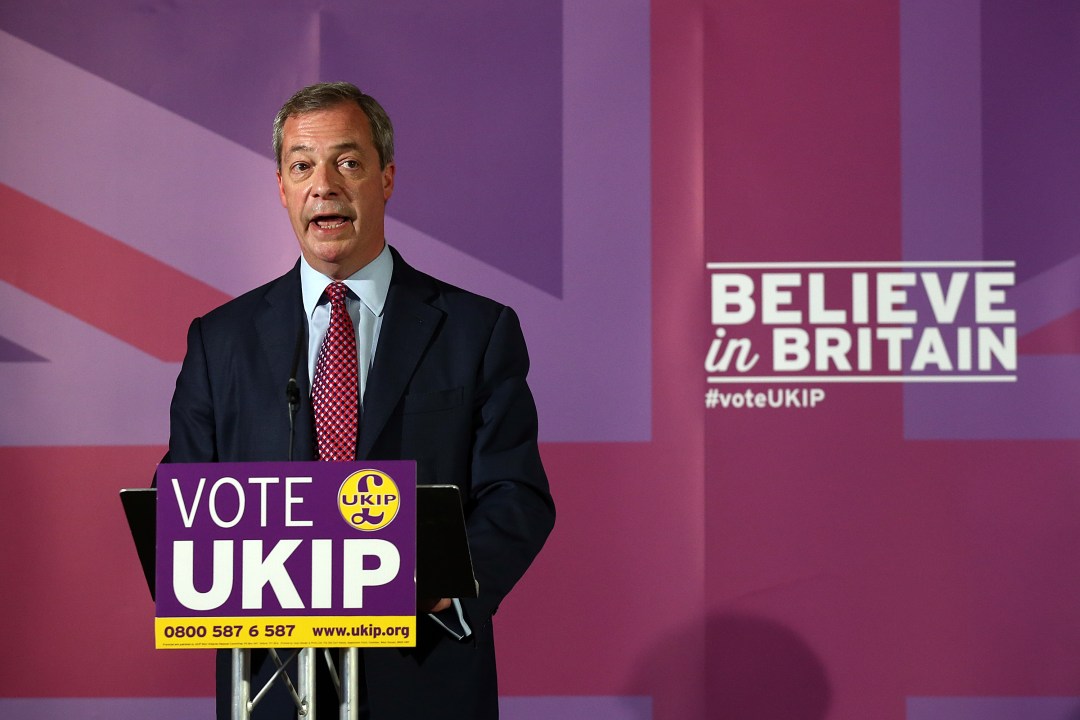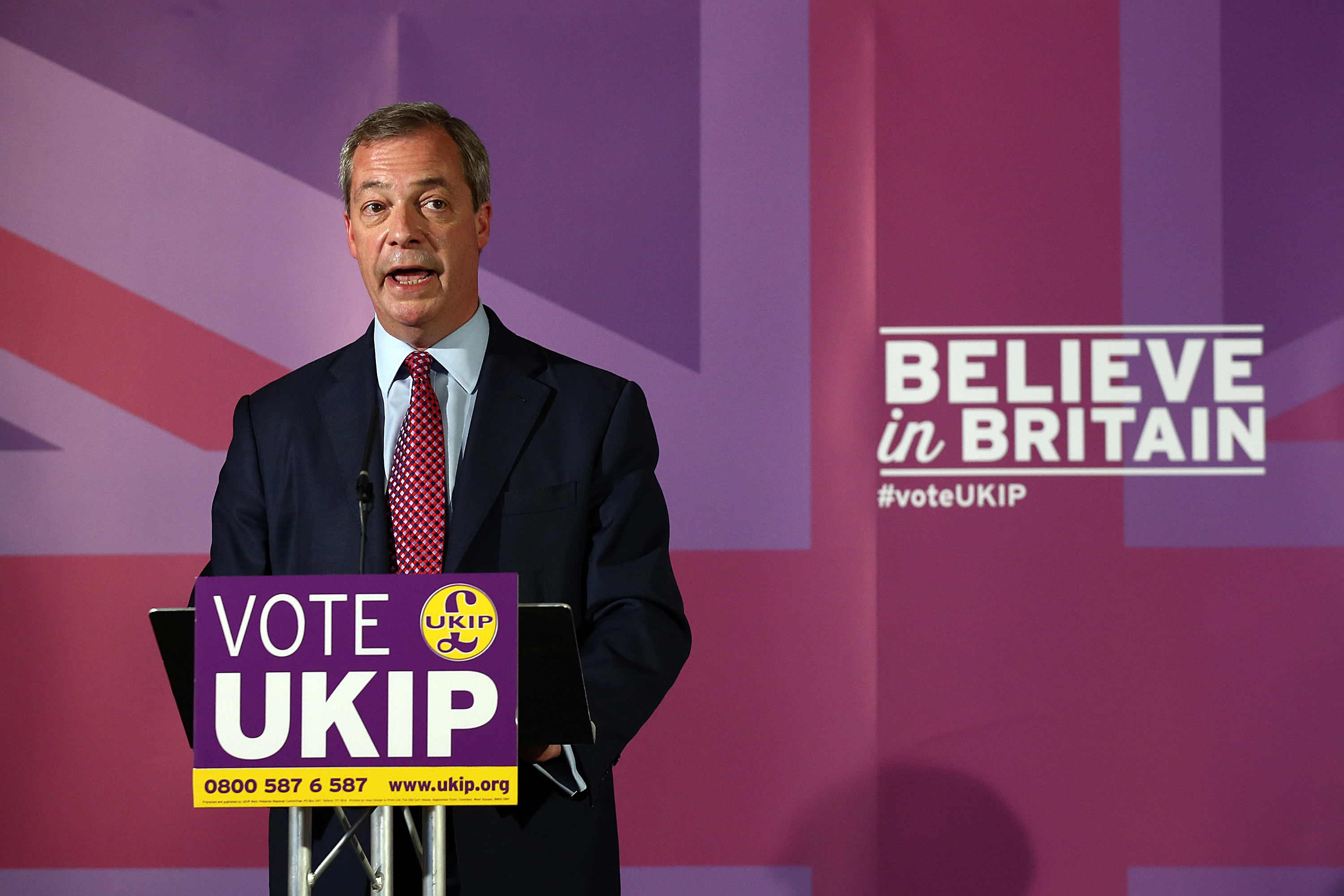One of the Ukip manifesto pledges that’s making certain types a bit grumpy today is a pledge to abolish the Department for Energy and Climate Change. Unite has said that this ‘beyond barmy and would create chaos’.
Unite is a union and is naturally keen to support the jobs of those who work for DECC and in industries covered by the department. But this particular Ukip policy might be one that a party of government ends up adopting. Nigel Farage’s party’s manifesto said today that DECC should be abolished because its ‘essential powers and functions can be merged into other departments’. Influential Tories agree with this: in 2013, the Free Enterprise Group of Conservative MPs published a pamphlet written by Dominic Raab called ‘Weight Watchers for Whitehall’ which proposed cutting nine departments, including a merger of DECC with the Department for Environment, Food and Rural Affairs. It said:
‘The division of environmental responsibilities between two departments has led to duplicated spending. For example, Defra is spending over £200 million per year on climate change. The split has also impaired the formulation of coherent environmental policy, for example, by separating key areas such as environmental resilience and adaptation from energy and carbon reduction policy. By merging the two departments into a Department for Energy and the Environment, it would be possible to reduce the combined budget by 20 per cent, saving around £1.3 billion per year.’
The FEG includes many rising stars and represents the intellectual bulwark of the current Conservative party. Indeed, one of its members would be out of her current job if such a merger went ahead: Liz Truss, the Environment Secretary.
Given the Tories will have to find big cuts from unprotected spending areas in the next parliament, merging departments as Raab suggested wouldn’t be the worst way to make a start. The main criticism would be that such a move ‘sent a message’ about how the government views certain issues, even if in practice nothing changed about the delivery of policies. DECC was set up in 2008 to ‘send a message’ about the importance of tackling climate change, after all.
But what in practice would stop this is that if there is another coalition between the Tories and the Lib Dems, both parties will want a good number of ministerial jobs to hand out, and cutting the number of departments makes that more difficult. It would ‘send a message’ to certain backbenchers that they had even less of a chance of promotion, and therefore encourage even more rebellion. So DECC may well be safe, even if for entirely the wrong reasons.








Comments